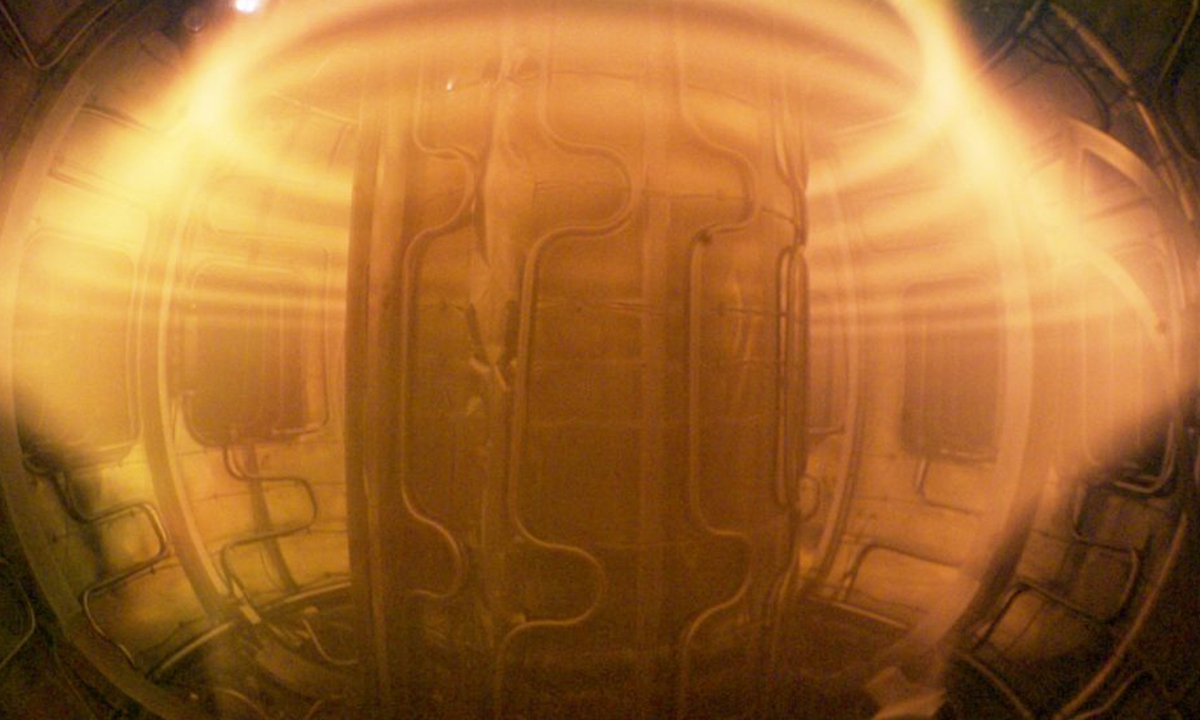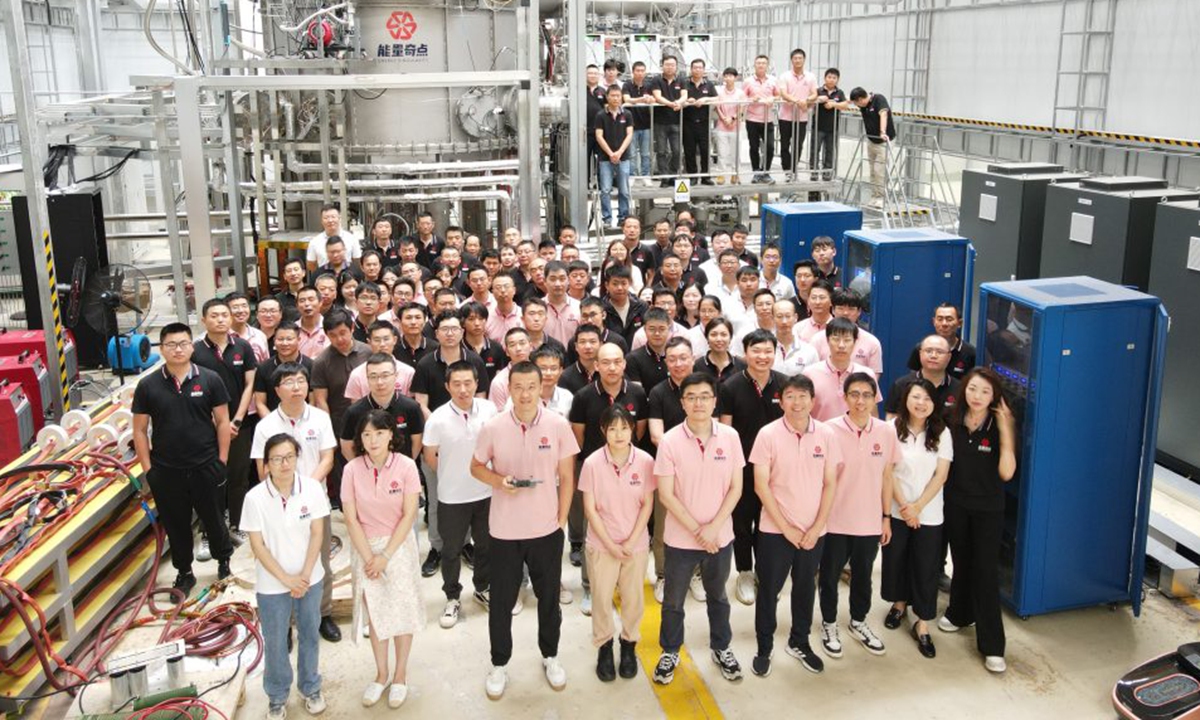Young physicists accelerate realization of commercial fusion energy in China
Sun chasers

Picture shows the inside space of HH70.Photo: Website of Energy Singularity
Editor's Note:
The youth are the vanguards of our time, showcasing boundless energy and vibrant personalities.
Gen-Zers not only represent the makers of the future but also serve as agents of change in the present. With an open mind-set and an international outlook, they actively integrate into the currents of globalization, engaging in deep exchanges, and collaborating with youth from around the world to explore pathways and strategies to address global challenges.
The Global Times has launched the "Voice from Gen Z" series, which focuses on the proactive actions and innovative achievements of young people in areas such as global governance, cultural exchange, environmental protection, and technological innovation. Through this column, we aim to showcase the unique charm and future leadership of global Gen-Zers.
Amid growing concerns over energy crisis around the world, especially given AI's enormous appetite for electricity in the future, confinement nuclear fusion is viewed by many experts and industry insiders as the ultimate energy solution to provide humanity with an almost infinite, clean, and cheap source of energy.
China is one step closer to obtaining the ultimate energy as on June 19 Shanghai-based fusion energy company Energy Singularity announced that its fully high-temperature superconducting tokamak, Honghuang 70 (HH70), recently successfully achieved first plasma.
The completion and operation of HH70 took the lead in the world in completing the engineering feasibility verification of high-temperature superconducting tokamak device, marking that China has gained a first-mover advantage in the key field of high-temperature superconducting magnetic confinement fusion, the company said.
The move also indicates that Yang Zhao, Energy Singularity's Chief Executive Officer, is getting closer to his dream to accelerate the realization of commercial fusion energy.
Yang was admitted to the School of Physics, Peking University, to pursue his undergraduate degree in 2009. Since then, he has been focusing on confinement nuclear fusion technology. After graduating from Peking University, he furthered his studies at Stanford University in the US and obtained a PhD in theoretical physics, according to Shangguan News.
Nuclear fusion is the joining together of atomic nuclei of light elements such as hydrogen to form larger nuclei. It is the process by which vast amounts of energy is produced in stars like our sun. Compared to fossil fuels that produce large amounts of carbon emissions and nuclear fission energy with the risk of nuclear leaks, confinement nuclear fusion is an infinite, clean, and safe energy source.
With the increasing maturity of high-temperature superconducting materials and the rapid development of AI technology, the high-temperature superconducting tokamak - commonly known as "artificial sun" - has been widely believed to have the potential to open the door to commercialization of fusion for energy generation.
"The commercialization of confinement fusion will bring about revolutionary changes to human society, and such changes are bound to happen"; it is with this belief that Yang and his partners decided to found Energy Singularity three years ago. They believed that the development of confinement fusion was approaching a turning point and could potentially be commercialized within 10-15 years, according to Shangguan News.
Yang recalled that the most urgent matter when the company started was to build a 35 kilovolt substation, without which the "artificial sun" could not operate. A 35 kilovolt substation can provide 20 megawatts of electrical power, equivalent to the simultaneous operation of 20,000 air conditioners.

Group photo of Energy Singularity team Photo: Website of Energy Singularity
The design, approval, construction, and acceptance of such a substation typically takes a long time. However, with the concerted efforts of multiple departments and authorities, it only took 10 months from submitting the power supply application to the official power-on of the substation.
Continuing with such speed, the company completed the design, research, and construction of HH70 in two years, setting the fastest record for the research and construction of a superconducting tokamak device in the world.
HH70 was built from scratch, and the company also developed from a 4-person team to a world-class research and engineering team of more than 120 people within a year, attracting many outstanding talents from home and abroad.
HH70 is just the first step. "We are simultaneously developing the next generation of high-parameter fusion magnet - the Jingtian magnet, whose magnetic field strength will exceed 25 Tesla. It is expected to become the fusion device magnet with the highest magnetic field strength in the world and verify the engineering feasibility of high magnetic field high-temperature superconducting tokamak at the component level," Yang told Wen Wei Po.
In the next step, Energy Singularity plans to build HH170 by the end of 2027 that will be based on HH70 and the Jingtian magnet. The goal of HH170 is to achieve an energy gain (Q) greater than 10 at the lowest cost, laying a key scientific and engineering foundation for obtaining fusion energy with high cost-effectiveness.
In the third step, the company will collaborate with nuclear power plant owners to develop and construct the HH380 high-temperature superconducting fusion power generation experimental reactor, achieving a demonstration of fusion power generation around 2030-2035.
"Step by step, commercialization of nuclear fusion will definitely be achieved. I hope we will be the first to reach it," Yang said.
Global Times
